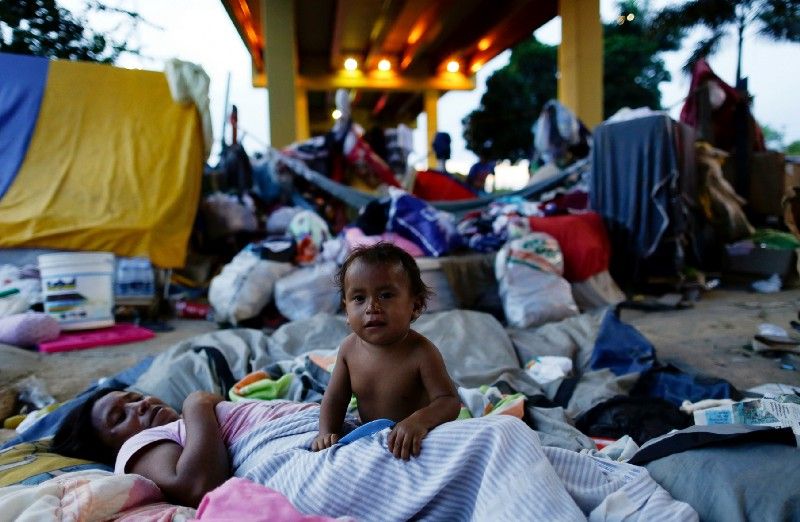May 01, 2018
Across Latin America, US President Donald Trump is deeply unpopular, in part because of his harsh policies (and words) towards immigrants from the region. But as Venezuela’s political and humanitarian crisis deepens, driving hundreds of thousands of desperate people into neighboring countries, Latin American governments that have generally kept open-border policies are facing harder choices of their own on migration policy.
The island nation of Trinidad and Tobago has already deported several dozen Venezuelan refugees, drawing criticism from the UN.
In Brazil, waves of Venezuelan asylum-seekers are overwhelming the infrastructure of sparsely-populated regions that border Venezuela, prompting one governor to sue the federal government in a bid to close the border and secure more humanitarian assistance.
In Colombia, where the recently-ended conflict with Marxist guerillas had already displaced some 7 million people, the arrival of 600,000 Venezuelan refugees is further straining resources and sharpening political divides ahead of this month’s presidential election. In fact, the leading presidential candidate has already proposed quotas for refugees.
Across the region, an increasingly nasty xenophobia against Venezuelans is taking root, even in popular culture.
In Europe, the shock of the Syrian refugee crisis fundamentally altered the European Union and its member states, driving politics rightward, stoking long-dormant nationalisms and, arguably, costing the EU its second largest economy.
Modern Latin America has never known a cross-border refugee crisis of this magnitude.
Will the impact be as profound?
More For You
With close ties to both the US and China, can Singapore survive in an increasingly fragmented and chaotic world? Singapore’s President Tharman Shanmugaratnam joins Ian Bremmer on the GZERO World Podcast.
Most Popular
Think you know what's going on around the world? Here's your chance to prove it.
UK Prime Minister Keir Starmer shakes hands with Chinese President Xi Jinping, ahead of a bilateral meeting in Beijing, China, on January 29, 2026.
Carl Court/Pool via REUTERS
This week, Prime Minister Keir Starmer became the first UK leader to visit China in eight years. His goal was clear: build closer trade ties with Beijing.
Igmel Tamayo carries charcoal to sell on the side of a road for use as cooking fuel in homes, after US President Donald Trump vowed to stop Venezuelan oil and money from reaching the island as Cubans brace for worsening fuel shortages amid regular power outages, on the outskirts of Havana, Cuba, on January 12, 2026.
REUTERS/Norlys Perez
© 2025 GZERO Media. All Rights Reserved | A Eurasia Group media company.
